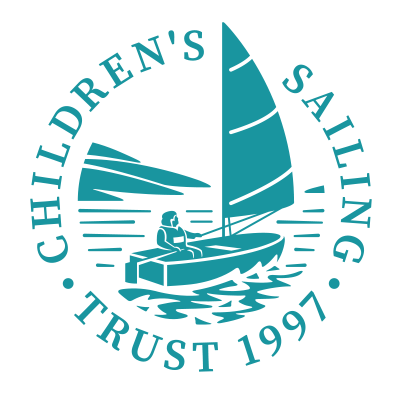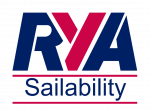CST Grievance Policy
1.Introduction
The Children’s Sailing Trust (CST) is committed to providing a positive working environment and to investigating all grievances raised by an employee/volunteer or group of employees/volunteers, promptly and fairly, as laid down in the procedures in this Policy. The employee(s)/volunteer(s) must also follow the appropriate procedure.
2. Purpose
If an employee or volunteer has a problem (or grievance) at work it is usual to try to resolve it informally first. If this is not possible our grievance procedure explains how a concern can be raised in a constructive way. Where a grievance exists, it will be given a fair hearing by the appropriate line manager, or another manager if the grievance relates to their line manager.
Employees/volunteers wishing to make a protected disclosure should consult the Whistleblowing Policy.
3. Scope
This Policy applies to full and part-time employees, seasonal employees and volunteers. CST encourages employees to communicate their grievances. That way we can foster a supportive and pleasant workplace for everyone.
4. Informal Process
Most concerns can be discussed and dealt with within the course of a normal working relationship whereby they can be discussed frankly and freely with the appropriate line manager. This procedure should not be used until work place communications have been shown to be ineffective or where the concern is not appropriate to be dealt with through the usual channels.
A line manager will seek to resolve the concern personally or by mutual agreement if it involves other members of staff. Any grievance that transpires should be resolved at the earliest opportunity. However, if this is inappropriate, or unsuccessful the employee/volunteer may commence the formal grievance procedure as set out below. This procedure is non-contractual but applies to all.
5. Formal Process
A grievance should be submitted in writing to the appropriate line manager or to the CEO if the grievance relates to the line manager. The document should make it clear what the grievance is, giving full details of the nature of the grievance.
The appropriate line manager – or the investigating manager – in conjunction with the CEO will arrange a formal meeting without unreasonable delay, to discuss the grievance. The meeting will allow the grievance to be considered in detail, in particular the employee/volunteer should be given the opportunity to explain their grievance and how it could be resolved. The meeting may
be adjourned to allow further investigation to take place. At the meeting, and any subsequent meeting or appeal meeting, the employee/volunteer may be accompanied by a colleague or a trade union representative, who may address the hearing but not answer questions on the employee/volunteer’s behalf.
The investigation will gather as much information and evidence as possible from both sides. This will allow both sides to have their say before a decision is made. All investigations should be sensitive to the circumstances and the needs of the person the grievance is about, as well as the person who raised the grievance. All records from the meetings should be kept confidential, including the evidence gathered, decisions made and actions taken.
Following investigation, a decision regarding appropriate action should be made. The decision should be communicated without delay, in writing, and the appeal procedure included. The decision may be that the grievance is upheld, partially upheld or not upheld. Actions may include mediation between the two parties, or mutually agreeable resolutions, the disciplinary process may be invoked or an individual could appeal the decision. The outcome and details must remain confidential although it is advisable for both parties and anyone else who has been involved in providing, for example, evidence to be spoken to so as to avoid gossip or bullying. Any lessons learnt from the grievance or future recommendations for improving the working environment or ways of working should be shared with the Management Committee.
6. Appeal Procedure
If an employee/volunteer is not happy with the outcome or action taken in resolution of the grievance, they have the right to appeal the decision. A formal letter must be submitted to the CEO or the Chair of Trustees if the CEO has presided over the original grievance, setting out the grounds of appeal without unreasonable delay – usually within five days of the outcome meeting/letter.
The employee/volunteer will be invited to an appeal meeting (usually within two working weeks of receipt of the appeal letter). The appeal will be dealt with impartially and by someone who was not involved in the original case. The appeal decision will be final and given in writing without unreasonable delay (usually within two working weeks of the meeting). After hearing an appeal, the investigating manager will review any new evidence and then decide if the original outcome was fair or if the original outcome should change (if it is obvious that the original decision was not right) or decide if a new investigation is needed to find out more information before making a final decision.
If another investigation is necessary, this may involve finding or looking at new evidence, re-checking previous evidence, talking to the same people again or talking to new people. A confidential report should then be written.
Following the report, the outcome should be communicated without unreasonable delay in writing and with confirmation to the employee/volunteer that the decision is now final. The decision should also be communicated to the Management Committee.
7. Policy Review
The Trustees are responsible for the upkeep and implementation of this Policy, cascading such responsibility to the Chief Executive.
Through Trustee reports received, the Chief Executive will outline the impact of this Policy and if amendments to it are required to ensure this Policy meets its ultimate aim. The Chief Executive will revise/update this Policy with named colleagues every two years.
July 2023









